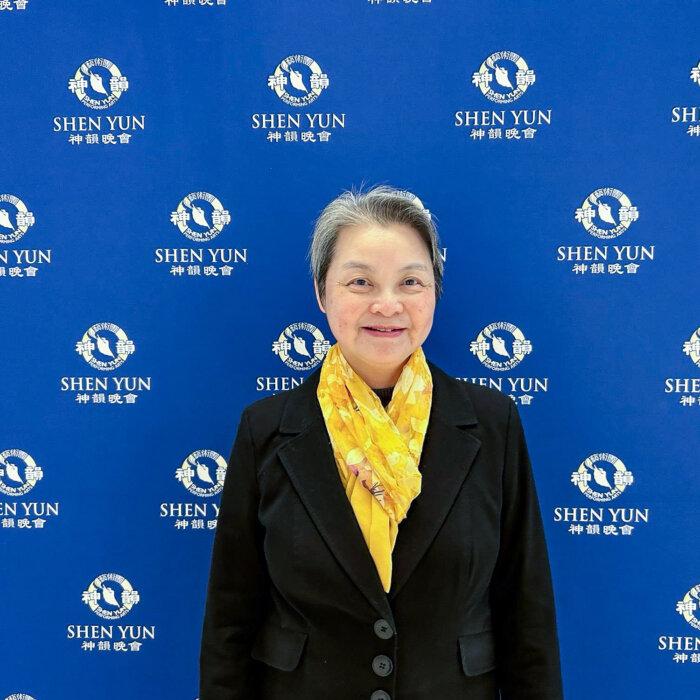Yi-Chi is a talented 20-year-old opera singer currently studying at Niao Song High School of the Arts in Taiwan. Despite appearing as a cheerful young man pursuing his dream in vocal music today, Yi-Chi had a traumatizing past during his teenage years.
He was once known as a lively boy in his youth with a spark in his eyes and boundless curiosity, but he later fell into the depths of obsessive-compulsive disorder (OCD), anxiety, and depression.
What started as fleeting moments of unease soon spiraled into a relentless battle with severe mental health challenges. Repetitive behaviors, intrusive thoughts, and overwhelming despair consumed his days, pulling him away from the vibrant social life he once knew. His school and social life were severely disrupted due to his inability to manage his day-to-day life.

The Descent: A Life Unraveled
Yi-Chi’s OCD emerged during the second year of his junior high, at around 14 years old. His mental health condition quickly deteriorated, leaving him confused and unable to engage in his normal daily life.“I constantly felt the urge to organize things, but later I realized I didn’t want to do it,” he said. “The process was painful. I couldn’t focus on the teacher’s instructions in class. I didn’t know what was wrong with me. I just felt different from others.”
By the time Yi-Chi entered high school, he was withdrawn completely from his social life, unwilling to even leave home. He would repeat the same actions over and over, unable to stop. His OCD trapped him in exhausting routines, such as spending 3 to 4 hours showering or meticulously folding clothes, disrupting his daily schedule.
In school, he would miss out on classes due to spending hours getting dressed and constantly losing track of time.
“It’s not rational,” he said. “I was very conflicted. I was dazed.”
Eventually, Yi-Chi took a year off from school, as he could not even buy his lunch or drink water normally in the cafeteria, completely trapped in his compulsive routines. When he enrolled in a different school after a year, he only lasted a month before taking a break again. His teachers expressed concerns about suicide risk given his severe depression and inability to manage his own life.
Despair and anxiety accompanied his compulsive, never-ending routines. At home, Yi-Chi would lie on the floor for long periods of time since he was anxious about sleeping on his bed.
“Everything just blocked me completely,” he said. “It’s like I had no ability at all.”
He described his mental health as an internal struggle against himself, frustrated by how he was unable to control his own actions.
The Turning Point
At his lowest, Yi-Chi felt trapped in an endless cycle of compulsive routines. A social worker, who had built trust through regular counseling, introduced him to the book “Zhuan Falun.” Though hesitant, coming from a non-religious family, Yi-Chi trusted her guidance and began reading.The book intrigued him. After repeated readings of “Zhuan Falun,” Yi-Chi’s life unconsciously improved, and he gradually overcame his compulsive routines in life.
“It felt quite magical. I was immersed in reading,” he said.
Yi-Chi started to regain his self-confidence. He was able to shower normally and wanted to step out of the house to reengage with his social life.

Living Fully Again
Yi-Chi’s mental health crisis had lasted for three years, but within a month, he gradually recovered as he read “Zhuan Falun.”Soon after, he volunteered to work in Taiwan’s Ministry of Foreign Affairs, handling various administrative tasks. When the Russia-Ukraine War started, Yi-Chi’s job involved handling donations from Taiwanese people to the suffering civilians on the frontline. He was able to organize his activities and was motivated to interact with his peers around him.
Reflections
Looking back at his transformation, Yi-Chi felt that “Zhuan Falun” discussed principles that he seemingly already knew and agreed with. “I feel that the content truly changes people,” he said.The book’s concepts of virtue and karma intrigued him personally. There was a Chinese saying that past deeds in a past life lead to karma. Yi-Chi believes that his painful past experiences were a process to help him recognize Falun Dafa.
“I believe people have multiple lives, accumulating karma over many lifetimes,” he said. “All need to be repaid in different ways. I might’ve been repaying in this way, and I was fortunate to obtain Dafa.”
In “Zhuan Falun,” a chapter on strengthening the main consciousness impacted Yi-Chi the most. He described his former self as his main consciousness not being in his physical body. This new revelation allowed him to regain a sense of purpose and confidence in life.
Yi-Chi has no regrets over his past trauma and believes that his experiences allowed him to find Falun Dafa and transformed him into a better person. As a Falun Dafa practitioner today, he observes the principles of truthfulness, compassion, and tolerance in his daily life.
In the past, Yi-Chi often felt embarrassed and frustrated by his younger brother, who has Down Syndrome. Now, he has learned to be tolerant of his brother and accept him for who he is.
At school, he reconciled with other students who had misunderstandings with him before, taking the initiative to apologize and communicate honestly with his peers.
“If I do something that harms others, or fail to consider them first, causing them loss, I might accidentally create karma,” he reflected. “I may have to go through certain experiences and suffer in some way to eliminate the karma and transform it into virtue.”







